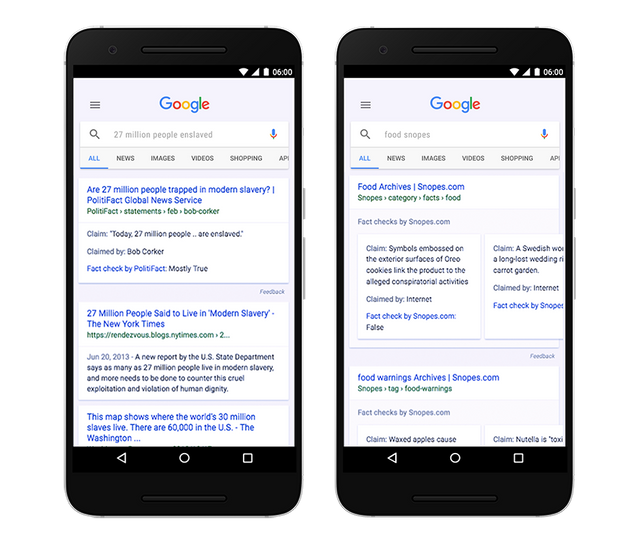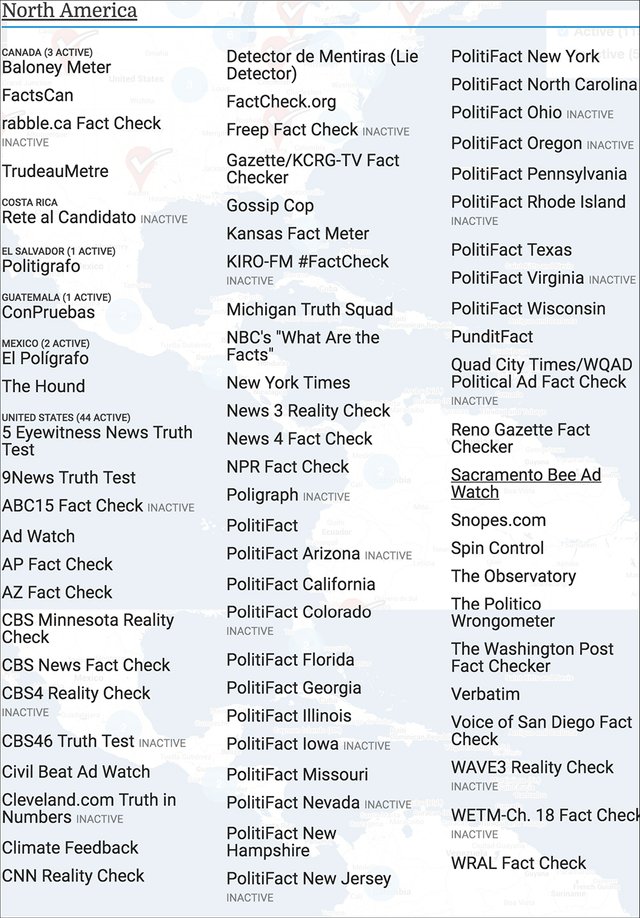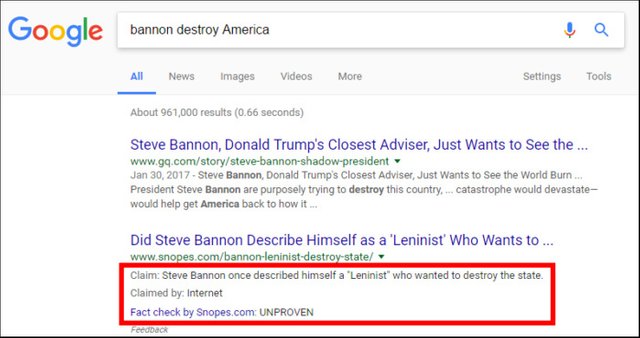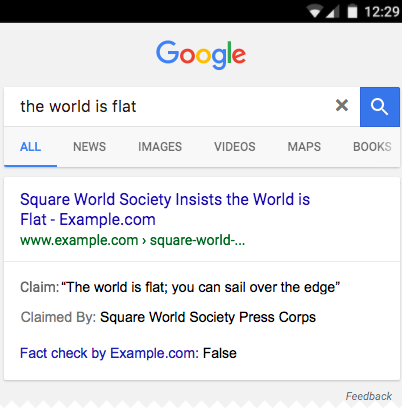April 7, 2017
Search engine judges "truth" of news content for readers
Search engine Google will begin warning users that claims made in search results and news articles are disputed by fact-checking sites, the latest effort to combat so-called “fake news.”
In a blog post Friday, the search giant announced changes which they claim are intended to help users discern fact from fiction.
“With thousands of new articles published online every minute of every day, the amount of content confronting people online can be overwhelming. And unfortunately, not all of it is factual or true, making it hard for people to distinguish fact from fiction,” the company wrote.

Following a pilot program in “a few countries,” the company said it is ready to roll-out a “fact check” tag in news and search results that will appear below certain search queries.
“This label identifies articles that include information fact checked by news publishers and fact-checking organizations,” the blog post states, adding that “For the first time, when you conduct a search on Google that returns an authoritative result containing fact checks for one or more public claims, you will see that information clearly on the search results page.”
The feature relies on an algorithm of data compiled by a host of fact check sites, among them Snopes, NPR, Politico, The Washington Post, The New York Times and Politifact, all of which have been accused of showing a liberal bias in their judgements and many of which have been criticized by US President Donald Trump himself as “fake news.”

List of North American “fact checkers” used at Duke Reporters’ Lab to verify “true,” “false” news/search results for Google.com. / http://reporterslab.org/fact-checking/
“Fact Check” currently only works with specific search terms, such as those listed in the example above, and one found by PC World, in which Snopes claims the term, “bannon destroy America,” is “Unproven.”


Google also warned there may be search results or news stories where different fact checkers reached different conclusions, but they claim those results will still be “presented so people can make more informed judgements.”
“Even though differing conclusions may be presented, we think it’s still helpful for people to understand the degree of consensus around a particular claim and have clear information on which sources agree.”
Publishers wanting to incorporate the new “Fact Check” will need to submit pages to Google and Schema.org/ClaimReview for review, and fact checks will need to “meet the News Publisher criteria for fact checks.”
https://www.infowars.com/google-fights-fake-news-with-fact-check-in-search-results/
https://blog.google/products/search/fact-check-now-available-google-search-and-news-around-world/
Downvoting a post can decrease pending rewards and make it less visible. Common reasons:
Submit
Copying/Pasting full texts without adding anything original is frowned upon by the community.
Some tips to share content and add value:
Repeated copy/paste posts could be considered spam. Spam is discouraged by the community, and may result in action from the cheetah bot.
Creative Commons: If you are posting content under a Creative Commons license, please attribute and link according to the specific license. If you are posting content under CC0 or Public Domain please consider noting that at the end of your post.
If you are actually the original author, please do reply to let us know!
Thank You!
Downvoting a post can decrease pending rewards and make it less visible. Common reasons:
Submit